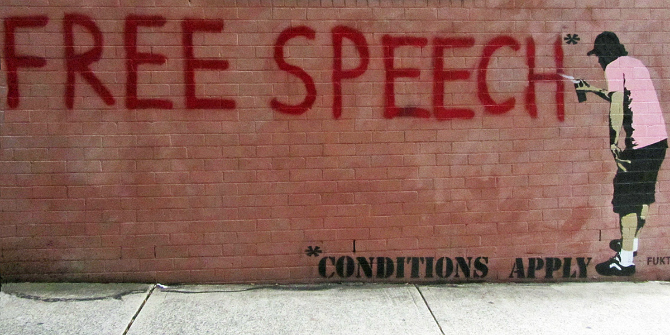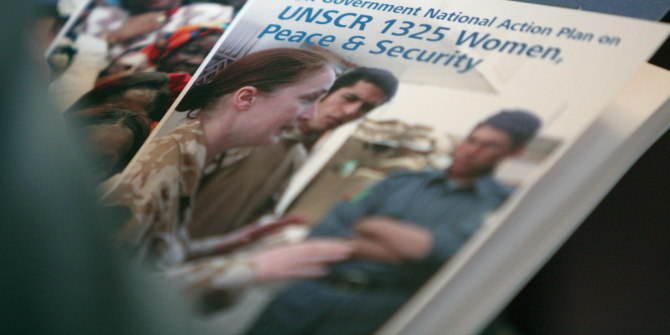 In this period of economic crisis, public sector cuts, and escalating class struggles, Marxist theory offers social workers and service users important tools to help understand the structures of oppression they face and to devise effective means of resistance. This book uses Marxism’s lost insights, reinterpreting them for the current context by focusing on one particular section of the international working class: refugees and asylum seekers in Britain. Shuo Liu finds that this book offers a unique understanding of the refugee’s position in Britain, and is a valuable contribution to the anti-racism effort.
In this period of economic crisis, public sector cuts, and escalating class struggles, Marxist theory offers social workers and service users important tools to help understand the structures of oppression they face and to devise effective means of resistance. This book uses Marxism’s lost insights, reinterpreting them for the current context by focusing on one particular section of the international working class: refugees and asylum seekers in Britain. Shuo Liu finds that this book offers a unique understanding of the refugee’s position in Britain, and is a valuable contribution to the anti-racism effort.
Refugees, Capitalism and the British State: Implications for Social Workers, Volunteers and Activists. Tom Vickers. Ashgate. 2012.
 This book is aimed at providing an analysis of the conditions and needs of refugees in Britain. Adopting Marxism as an analytical tool, together with empirical research conducted in Newcastle between 2004 and 2010, Vickers offers us an insight into the interplay between state policies, refugees’ experiences and the way conflicts are mediated. Essentially the aim of the book is twofold: first to analyse the material basis of the oppression of refugees in Britain by the British state; and second to point out that the British state has been cultivating a “refugee relations industry”, within a broader narrative of “social capital building” to “manage” this oppression.
This book is aimed at providing an analysis of the conditions and needs of refugees in Britain. Adopting Marxism as an analytical tool, together with empirical research conducted in Newcastle between 2004 and 2010, Vickers offers us an insight into the interplay between state policies, refugees’ experiences and the way conflicts are mediated. Essentially the aim of the book is twofold: first to analyse the material basis of the oppression of refugees in Britain by the British state; and second to point out that the British state has been cultivating a “refugee relations industry”, within a broader narrative of “social capital building” to “manage” this oppression.
From the outset, Vickers defines refugees as people “who seek asylum” (p. 1). Seeing through the Marxist lens, he argues that refugees constitute a section of the international working class, who also belong to the “international reserve army of labour”. The majority of the refugees are from the countries that occupy an oppressed position; meanwhile Britain, as the first fully developed capitalist country and the biggest colonial and imperialist power, stands as a dominant and parasitic oppressor in the global imperial capitalism system. The explanation of the phenomenon of refugee/migrant flows can be found in the capitalist interests of Britain itself, the author argues, that the smooth running of imperialism “depends on the international division of the working class into a super-exploited majority, mostly located in oppressed countries, and a relatively privileged, and consequently docile, fraction within imperialist countries” (p. 26).
With the concept of refugee and the theoretical framework established, the book turns to examine Britain’s oppression of refugees, covering aspects of racism and the relationship between refugees and the British state; and also, the management of this oppression, which includes a consideration of the race relations industry in Britain with special attention paid to the Coalition government’s concept of the “Big Society”. The concept of “building social capital” proposed by the Labour government since 1997 is also included. In these chapters, Vickers uses the interviews he conducted with 18 refugees to illuminate the main issues, which provide fascinating insights into the views of the people who are actually affected by the British state’s actions.
Of particular interest is Vickers’s analysis of the persistence of racism in Britain and its relationship to the management of migration from oppressed countries and the super-exploitation of their inhabitants. As a Marxist, he focuses on class struggle and argues that “racism is a ‘natural’ response among people not used to migration to ‘their’ area”. He thinks that due to the lack of scientific understanding of society, race as a form of myth carries “social and political force despite its non-correspondence with material reality” (p. 38), and the supposed ethnic, homogenous England is in fact an ideological construction arising from the increasing imperialist position of the British capitalist development. This echoes Castles and Miller’s truism that “analysis of the causes and effects of racism must take a central place in any discussion of international migration and its effects on society”. Vickers draws out the point that in Britain, attention has been diverted from the structural causes of population displacement onto racialised and localised explanations, and this in turn, influences refugees’ position to be mediated by racism domestically.
Admittedly this analysis provides us a fascinating way to see how refugees are perceived as the ‘other’ and how the inclusive exclusion discourse comes into play. However, it overlooks the complicated cultural aspect of identity construction, probably due to the selected theoretical approach. Nevertheless, readers would find it useful if they read Vickers’s accounts critically as suggested by himself – “strong reflexivity” and “strong method” are needed in order to fully realise “strong objectivity”(p.174).
Vickers is right to point out that the state is not a neutral arbiter in relation to immigration (Chapter 3). Historically, British asylum policy has given priority to the interests of the British ruling class and the needs of British capital above the interests of refugees (p. 67). The discussion about refugees without status and their extremely oppressed situation deserves particular attention by social workers attention if they want to develop effective mechanisms to combat any systematic racism. In the field of international refugee law, academics have long argued that the refugee definition in the 1951 Refugee Convention is too restrictive, prioritizing as it does flight from persecution based on civil and political status as opposed to circumstances of economic hardship. However, efforts have been made to interpret the Convention within a human rights framework so as to avoid such a blunt dichotomy between political refugee (genuine refugee) and economic refugee (economic migrants).
Overall, this book offers a unique understanding of the refugee’s position in Britain, which of itself contributes to the anti-racism effort generally. It is a good read for social workers, volunteers and activists who care for refugees and mediate the conflicts between the refugees and the British state; also anyone with an academic interest in issues regards refugees and asylum seekers will find this title informative and easy to access.
—————————————————————————————–
Shuo Liu (LL.B, LL.M) is a PhD candidate in the School of Law at University College Dublin. Her PhD research explores the evolution of refugee law and protection in the People’s Republic of China. She has taught on Chinese politics and governance with a focus on legal issues. Her interests include refugee law, international human rights law, socio-legal studies, Chinese law and legal anthropology. Read more reviews by Shuo.








Thanks for this very detailed and thoughtful review. There is just one point that I feel I need to clarify, where the review gives the impression that I argue for a position on race that is contrary to the one I actually present. The review states:
‘As a Marxist, he [Vickers] focuses on class struggle and argues that “racism is a ‘natural’ response among people not used to migration to ‘their’ area”.’
This quote comes from page 36 of the book, under the heading: ‘Challenging the Myth of Racism as a ‘Natural’ Response to Difference’. The fuller quote reads:
‘The argument that racism is a ‘natural’ response among people not used to migration to ‘their’ area” has a certain common sense resonance in the case of contemporary Newcastle. Some writers have presented a picture of a ‘monocultural’ white Tyneside, sheltered from contact with immigrants until the 1950s or even later, expressed, for example, in arguments that as of 1980 ‘Tyneside’s parochial conservatism [had] hardly been challenged by contact with other cultures since the area has such a small ethnic minority population’ (Robinson 1988: 190). Yet such a picture is far from complete, and glosses over a much longer history of migration, settlement, racism and resistance.’
I go on to discuss some of this history and argue that the supposed ethnic homogeneity of the region is ideologically constructed, as the review notes, and that far from being a natural response to difference, racism is socially constructed and in the current period rooted in Britain’s imperialist position.
I have recently published a pamphlet that aims to present some of the key findings of the book to a wider audience, details are available at http://refugeescapitalismstate.wordpress.com.